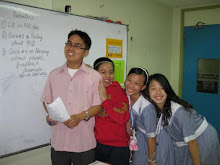
Manuel Acuña Roxas (January 1, 1892 – April 15, 1948) was the first president of the independent Republic of the Philippines. He served as president from the granting of independence in 1946 until his abrupt death in 1948. His term as Philippine president is also the shortest; 1 year 10 months and 18 days.
Manuel Roxas studied college in University of Manila, and law at the University of the Philippines College of Law, where he was a member of the college's first ever graduating class in 1913. He placed first in the bar examinations held later that year. He was immediately drawn into politics, and began what became a lifelong career in government service as a provincial fiscal. In 1921, he was elected to the House of Representatives. The following year he was elected House Speaker.
After the Commonwealth of the Philippines was established 1935, Roxas became a member of the unicameral National Assembly, and served (1938–1941) as the Secretary of Finance in President Manuel L. Quezon's cabinet. After the amendments to the 1935 Philippine Constitution were approved in 1941, he was elected (1941) to the Philippine Senate, but was unable to serve until 1945 because of the outbreak of World War II.
Having enrolled prior to World War II as an officer in the reserves, he was made liaison officer between the Commonwealth government and the United States Army Forces in the Far East headquarters of General Douglas MacArthur. He accompanied President Quezon to Corregidor where he supervised the destruction of Philippine currency to prevent its capture by the Japanese. When Quezon left Corregidor, Roxas went to Mindanao to direct the resistance there. It was prior to Quezon's departure that he was made Executive Secretary and designated as successor to the presidency in case Quezon or Vice-President Sergio Osmeña were captured or killed. Roxas was captured (1942) by the Japanese invasion forces. After a period of imprisonment, he was brought to Manila and eventually signed the Constitution promulgated by the Japanese-sponsored Philippine Republic. He was made responsible for economic policy under the government of Jose P. Laurel. The returning American forces arrested him as a Japanese collaborator.
No comments:
Post a Comment